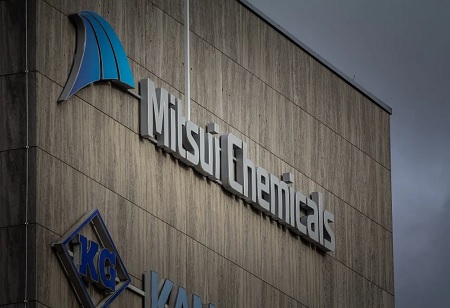
Mitsui Chemicals and ARRK Fuel Innovation with Concept Car Materials

 Mitsui Chemicals, Inc. and its subsidiary ARRK Corporation have announced that the materials they developed have been utilized in a high-performance concept vehicle based on the Toyota Fortuner. Specifically, direct pellet-fed 3D-printed components jointly created by Mitsui Chemicals and ARRK, along with TAFNEX CF/PP – a sheet of polypropylene resin reinforced with unidirectional carbon fiber developed by Mitsui Chemicals, have been integrated into the TOYOTA Hyper-F CONCEPT designed by TCD ASIA CO.
Mitsui Chemicals, Inc. and its subsidiary ARRK Corporation have announced that the materials they developed have been utilized in a high-performance concept vehicle based on the Toyota Fortuner. Specifically, direct pellet-fed 3D-printed components jointly created by Mitsui Chemicals and ARRK, along with TAFNEX CF/PP – a sheet of polypropylene resin reinforced with unidirectional carbon fiber developed by Mitsui Chemicals, have been integrated into the TOYOTA Hyper-F CONCEPT designed by TCD ASIA CO.
TAFNEX CF/PP and the newly developed direct pellet-fed 3D-printed components will be showcased at the Bangkok Auto Salon 2024, a custom car show held in the Thai capital, and at the Bangsaen Grand Prix 2024, an upcoming car race on the outskirts of Bangkok. The TOYOTA Hyper-F CONCEPT represents a high-performance model designed with styling that integrates road handling and aerodynamic expertise derived from TCD ASIA's motorsport endeavors. These innovative materials have contributed to significant weight reduction in the concept car. Moreover, the inclusion of four sports seats introduces a new level of enjoyment not typically found in two-seater vehicles.
TAFNEX CF/PP is employed in decorative components for sections of the front bumper and the hood air vents, while the direct pellet-fed 3D-printed components are integrated into the hood air duct bezels. In 2020, Mitsui Chemicals initiated an investment and business partnership with Dreams Design Corporation, an engineering service company specializing in automotive development. Subsequently, in 2023, Mitsui Chemicals entered into a comparable investment and business collaboration with ExtraBold Inc., a manufacturer of direct pellet-fed 3D printers.
The 3D-printed components fitted to the concept car bring together the auto part design technology of Dreams Design; ExtraBold’s EXF-12 3D printer, which delivers high-speed printing of large parts; the 3D printing and post-processing technologies of ARRK, one of Japan’s largest product development support companies in this industry, offering everything from prototyping to mass production; and the polyolefin-based composite technology being developed by Mitsui Chemicals for use in 3D printing.
By leveraging techniques akin to injection molding, direct pellet-fed 3D printers fabricate structures directly from plastic pellets. This method offers a distinct advantage over traditional 3D printers by ensuring a consistent increase in plastic deposition rate, facilitating rapid formation of large structures. In applications such as high-mix, low-volume mass production of 3D-printed items, this moldless approach significantly reduces development lead times and initial investments, including costs associated with molds. Furthermore, the technology is poised to support the circular economy, as 3D-printed items can be recycled by crushing them into pellets for reuse as raw materials in subsequent 3D printing processes.

